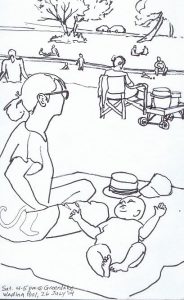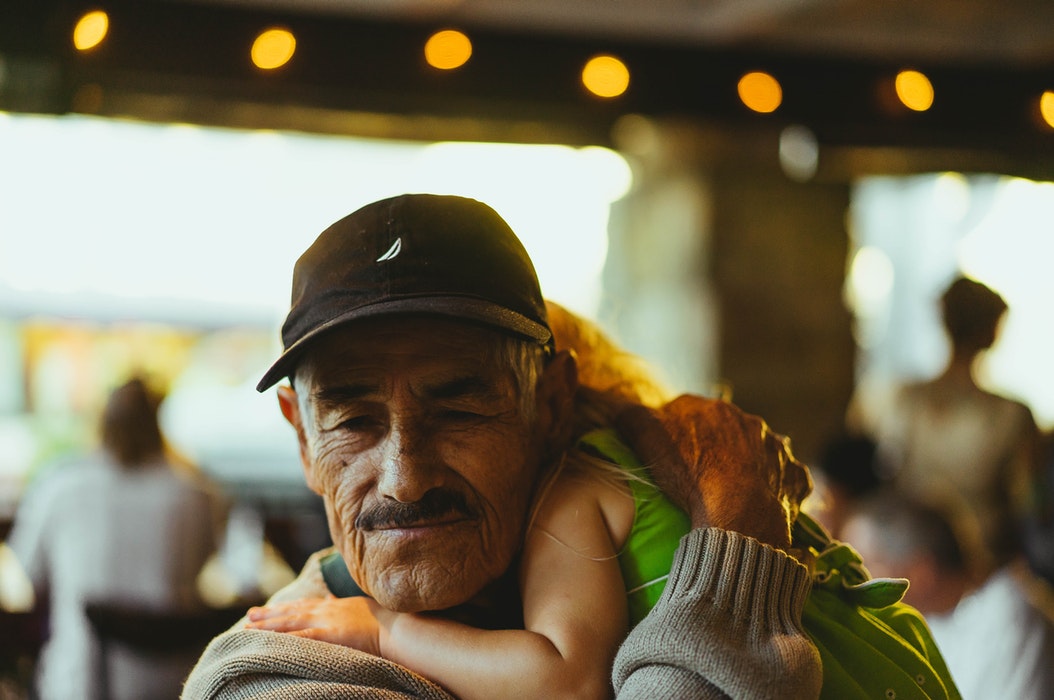By Lynne Baab
Today is National Grandparents Day, celebrated in the United States since 1978. Some other countries have grandparents day on other days of the year, and some countries have separate grandmothers and grandfathers days.
My initial impulse for this post was to talk about our darling granddaughter and what a blessing she is. And I will get to that. But first I want to say something about people who aren’t grandparents, even though many of their age-mates are.
I’m thinking of friends of mine who never had children because of the possibility of a congenital condition being passed on. And another couple who never had children because it just never happened. I’m thinking of friends who had one pregnancy – twins – that ended in stillbirth. They never got pregnant again. I’m thinking of friends whose children never married or have chosen not to be parents. These couples will never be biological grandparents, but they have showered love on their nieces, nephews, great-nieces, great-nephews, and other assorted children God has brought into their lives. Some of them volunteer in children’s programs at church.

[illustration: our daughter-in-law and granddaughter in 2014 by Dave Baab]
I’m listing all these people before describing the joys of grandmother-hood because for every person who might feel excited that Grandparents Day exists, and who might want to wax eloquent about how cool it is to be a grandparent, there may be another person for whom the day evokes sadness and a sense of loss.
How can we talk about something wonderful that others aren’t able to experience?
Carefully. With sensitivity. Using our imagination to try to consider how our enthusiasm might impact others.
I feel this challenge all the time. My husband I own a house that is just right for us in a city where home ownership is increasingly difficult for many. I have interesting work at an age when many people are forced to retire or can’t find meaningful things to do.
And we have a beautiful, intelligent, and charming four-year-old granddaughter when many of our friends don’t have grandchildren. Being a grandmother has been one of the most satisfying things I have ever experienced, the chance to do over some aspects of parenting with more wisdom, the opportunity to enjoy a child for a few hours or a few days and hand her back to her parents. I find huge pleasure in our granddaughter’s beautiful skin and eyes, as well as her cuddly body and affectionate hugs. I love her questions about so many aspects of life and her observations about bizarre and unexpected things.
Sometimes I’m on the opposite side of this uncomfortable divide between people who have something and people who don’t. I’m no longer able to walk long distances easily, which makes travelling difficult. Yet I want to rejoice in other people’s wonderful hikes and trips.
I want to be a thankful person, rejoicing in God’s gifts to me and to others. I want to be a compassionate person, lamenting with others what they don’t have that they desire, and feeling appropriate sadness when I experience loss. I want to be a person of prayer, who can pray for the needs and desires of the people in my life as well as for my own.
This juxtaposition of gifts/thankfulness with loss/sadness is particularly real to me right now because of the recent release of my book, Nurturing Hope: Christian Pastoral Care in the Twenty-First Century, which addresses many kinds of caring by Christians. In the chapter on resilience in caring for others I recommend embracing rhythms, and maybe part of what I’m talking about in this post is a rhythmical pattern of life where we embrace diverse emotions at different times.
The Psalms are an excellent model for movement between many different moods of prayer and many different thoughts about life. I cannot let my sadness about the childless or grandchild-less state others experience dull my prayers of thankfulness for my granddaughter. At the same time, I cannot let my own joy and gratitude crowd out my concern for others and what they feel.
God wants me to feel all these emotions at appropriate times. God wants me to pray about all these things, perhaps at different times, perhaps at the same time.
“The Lord is good to all,
and his compassion is over all that he has made.
All your works shall give thanks to you, O Lord,
and all your faithful shall bless you.
They shall speak of the glory of your kingdom,
and tell of your power. . . .
The Lord is faithful in all his words,
and gracious in all his deeds.
The Lord upholds all who are falling,
and raises up all who are bowed down.”
Psalm 145:9-11, 13, 14

